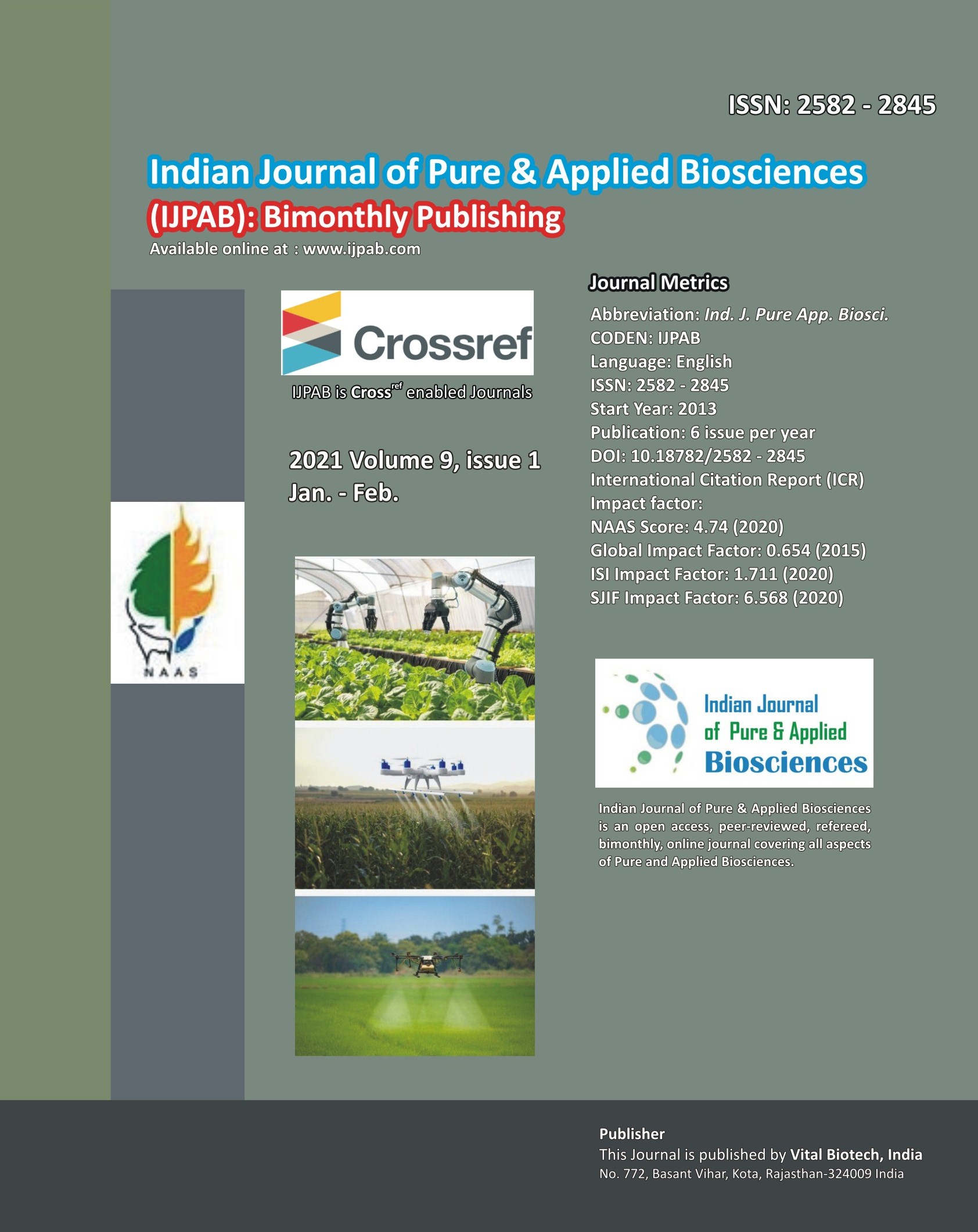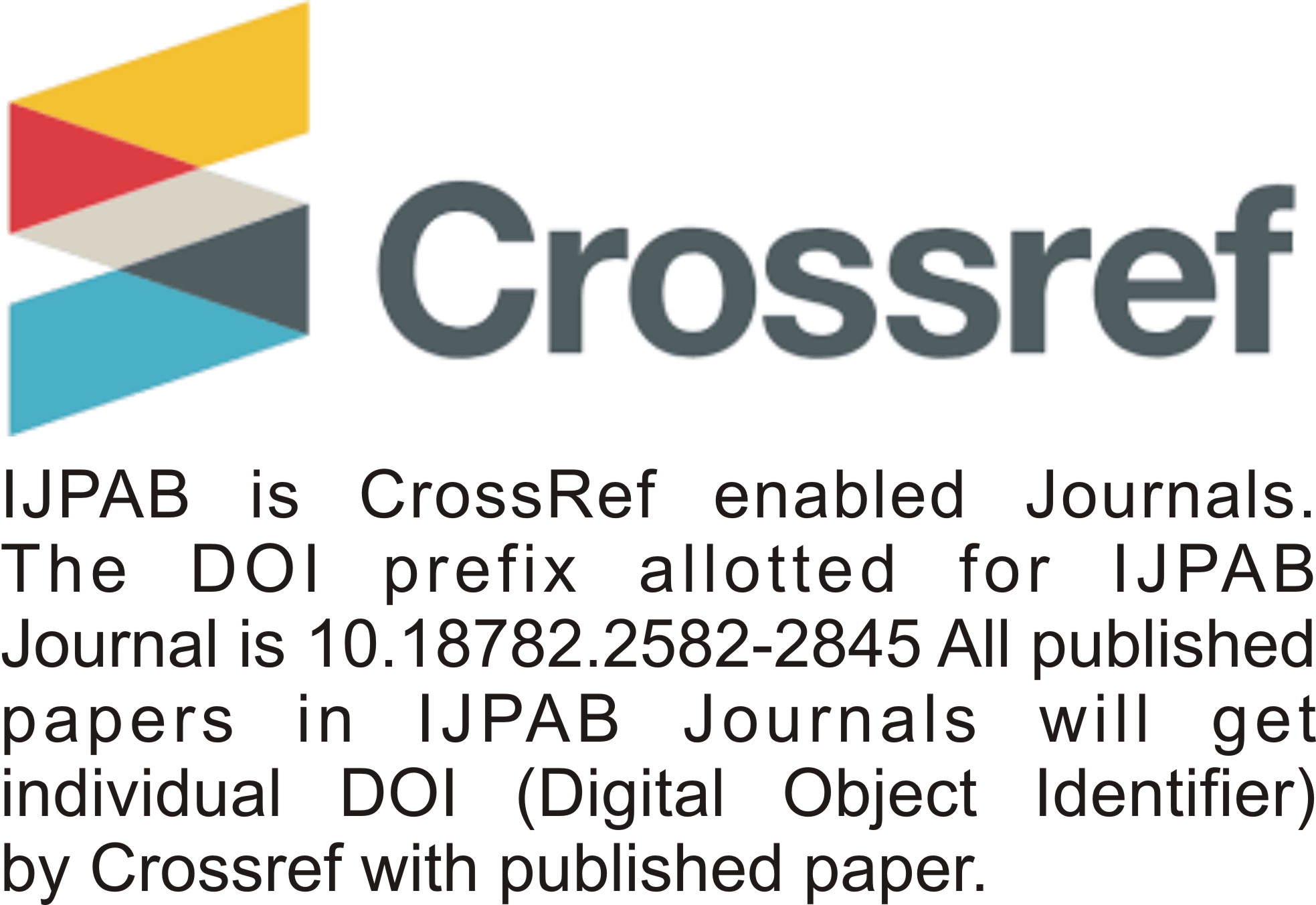
-
No. 772, Basant Vihar, Kota
Rajasthan-324009 India
-
Call Us On
+91 9784677044
-
Mail Us @
editor@ijpab.com
Indian Journal of Pure & Applied Biosciences (IJPAB)
Year : 2021, Volume : 9, Issue : 1
First page : (403) Last page : (410)
Article doi: : http://dx.doi.org/10.18782/2582-2845.8599
Evaluation of Nematophgaous Ability of Drechslerella dactyloides in Vicinity of Soil and Biocontrol Potential against Root Knot Disease of Brinjal
Dharmendra Kumar*
Department of Plant Pathology, College of Agriculture,
Banda University of Agriculture and Technology, Banda- 210001, U.P., India
*Corresponding Author E-mail: dkumarbuat@gmail.com
Received: 19.10.2020 | Revised: 27.11.2020 | Accepted: 8.12.2020
ABSTRACT
Conidia of five isolates of Drechslerella dactyloides frequently formed conidial traps in close vicinity of various field soils and cow dung manure which trapped and paralyzed the soil nematodes. However, predation of nematodes varied possibly because of the presence of varied number of nematode population in different field soils and cow dung manure. After trapping and killing of the nematodes by conidial traps, additional hyphae were produced from distal and proximal cells of spores on which constricting ring were formed which trapped other nematodes coming on the agar disc. The supplementation of mass culture of D. dactyloides with or without cow dung manure prior to planting of brinjal in conducive soil having 2000 active juveniles of Meloidogyne incognita per kg of soil reduced the number of root knot, females, egg sacs and number of second stage juveniles of M. incognita. However, application of D. dactyloides in combination with cow dung manure showed better control in comparison to D. dactyloides without cow dung manure.
Keywords: Nematode trapping fungus, Drechslerella dactyloides, Meloidogyne incognita, Conidial trap, Fungistasis.
Full Text : PDF; Journal doi : http://dx.doi.org/10.18782
Cite this article: Kumar, D. (2021). Evaluation of Nematophgaous Ability of Drechslerella dactyloides in Vicinity of Soil and Biocontrol Potential against Root Knot Disease of Brinjal, Ind. J. Pure App. Biosci. 9(1), 403-410. doi: http://dx.doi.org/10.18782/2582-2845.8599

